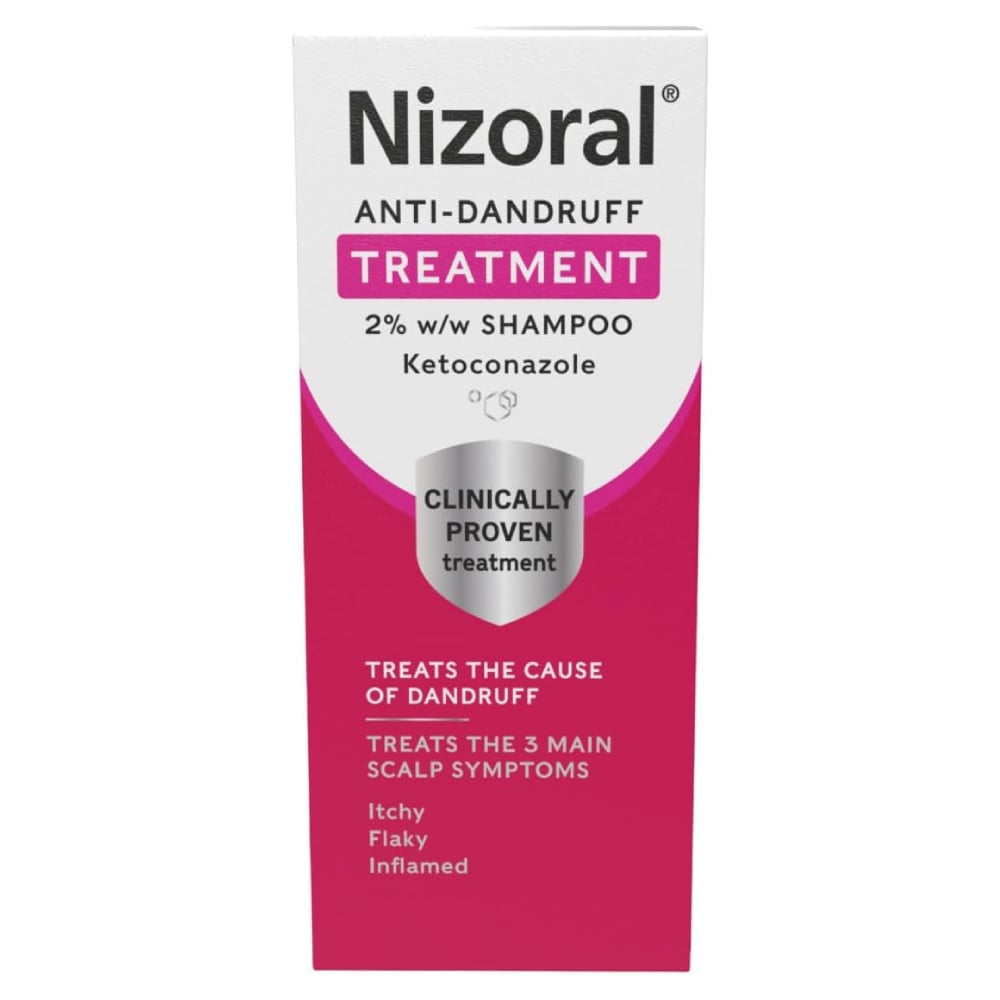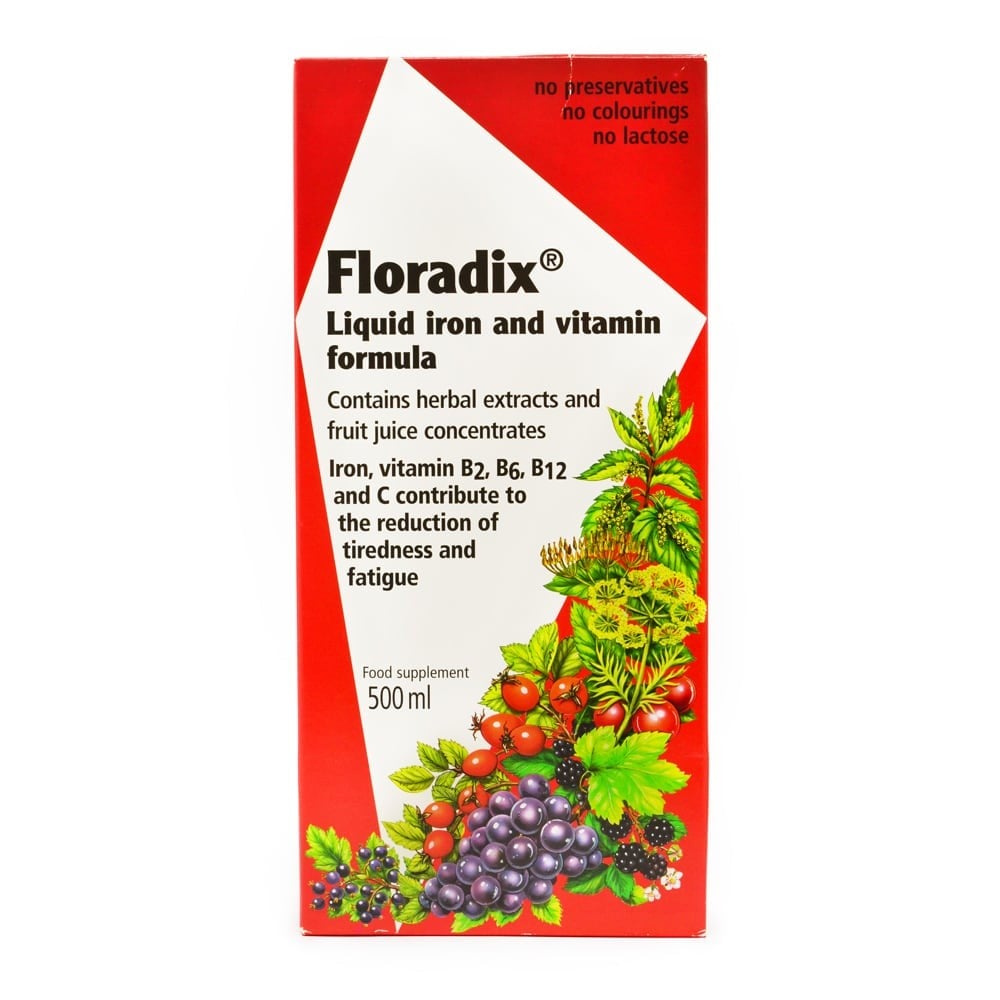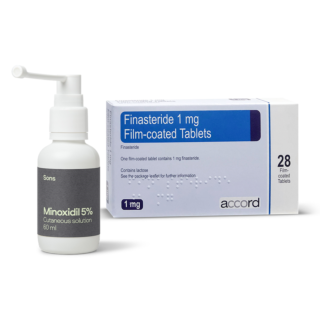Hair Loss
Hair loss is common for both men and women, no matter your age or background. Whether you’ve noticed your hair thinning, a receding hairline, or more strands than usual left behind after brushing, it’s natural to feel concerned. … Read More See less
While losing some hair every day is normal, more noticeable hair loss can have a real impact on your confidence and self-esteem.
The most frequent cause is pattern baldness, a hereditary condition that runs in families and affects both men and women as they age. But genetics isn’t the only factor. Stress, illness, and even certain hair care habits, like frequent heat styling or harsh chemical treatments, can also contribute to hair loss.
Although you can’t always prevent hair loss, you can take steps to protect your hair. Using gentle shampoos, limiting heat and chemical exposure, and eating a balanced diet can all help keep your hair in better condition.
If you’re ready to regain control, explore our range of proven hair loss treatments and find the right option for you.
-
Regaine for Men Extra Strength Scalp Foam - 73ml - 3 Pack (3 Month Supply)
(30) Now£66.99RRP £74.93
Now£66.99RRP £74.93 -
Regaine for Men Extra Strength Scalp Foam - 73ml - 6 Pack (6 Month Supply)
4U Deals
 Now£125.99RRP £179.99
Now£125.99RRP £179.99
Related Guides
The different types of hair loss
Male-pattern baldness (androgenetic alopecia)
Male-pattern baldness is the most common form of hair loss, typically presenting as a receding hairline and thinning at the temples and crown. Male pattern baldness is expected to affect around 50% of men[1] by the age of 50, with the likelihood increasing as men get older.
This type of hair loss is hereditary and linked to the sensitivity of hair follicles to the hormone dihydrotestosterone (DHT), which causes them to shrink over time.
While hair loss is not a sign of poor health, it can be distressing and lower self-confidence. We offer effective hair loss treatments, including prescription medications, to help treat male-pattern baldness.
Female-pattern baldness
Female-pattern baldness usually appears as a gradual thinning of hair across the top of the scalp, rather than a receding hairline. It’s less common than male-pattern baldness and often becomes more noticeable after menopause.
Still, the percentage of women affected remains high; around 40% of women will experience female-pattern baldness[2] by the time they reach 50. Treatment options are more limited but can still help slow hair loss and support new hair growth.
Alopecia areata
Alopecia areata is an autoimmune condition that causes patchy hair loss, often in round or oval areas on the scalp or other parts of the body. It can affect anyone, but it’s more common in younger people.
The hair may regrow on its own, but some people experience repeated episodes or more extensive loss, such as alopecia totalis (loss of all scalp hair) or alopecia universalis (loss of all body hair).
Scarring alopecia (cicatricial alopecia)
Scarring alopecia is a less common type in which inflammation destroys hair follicles and replaces them with scar tissue, resulting in permanent hair loss. Various skin conditions, such as lichen planus or discoid lupus, can cause it.
Telogen effluvium and other types
Telogen effluvium is a temporary form of hair loss triggered by stress, illness, hormonal changes (like postpartum hair loss or menopause hair loss), or nutritional deficiencies.
It usually causes diffuse thinning (uniform/all-over thinning) rather than bald patches and often resolves once the underlying cause is addressed.
Other causes include anagen effluvium (often due to chemotherapy), thyroid hair loss, PCOS hair loss, and medication side effects, including rare cases linked to treatments like Mounjaro.
What are the symptoms of hair loss?
Hair loss symptoms vary depending on the type and cause. Common signs include a receding hairline, thinning hair on the scalp or crown, patchy bald spots, or more hair than usual left in your brush or shower.
Hair loss in women may appear as a widening parting or overall thinning, while men often see a distinct pattern of loss. In some cases, hair loss can also affect eyebrows, eyelashes or other body hair. Some people may experience itching, redness or irritation on the scalp, especially with scarring alopecia.
How to diagnose hair loss
Most cases of male baldness, particularly male-pattern hair loss, can be recognised without needing to see a doctor. If you notice your hairline gradually receding—often forming an “M” shape—or thinning at the crown, and you have a family history of similar hair loss, you’re likely experiencing androgenetic alopecia (male-pattern baldness).
This pattern usually develops slowly over several years, so it might be subtle at first and become more noticeable as time goes on. Early intervention is essential, as starting treatment sooner can help slow the progression and improve results.
If you’re unsure about the cause of your hair loss or notice unusual symptoms such as patchy hair loss, redness, scaling, pain or excessive shedding in a short period, it’s worth speaking to your GP.
A doctor can usually diagnose the type of hair loss by examining your scalp and discussing your medical and family history. In some cases, further tests like blood work or a scalp biopsy may be needed to rule out other conditions.
How much hair loss is normal?
It’s completely normal to lose some hair every day. Most people shed between 50 and 100 hairs daily, often without even noticing. This happens naturally as part of the hair’s growth cycle, including growth, rest and shedding phases.
You might spot more hair in your brush, shower or on your clothes, especially if you have longer or thicker hair. This can look like a lot, but it’s usually nothing to worry about. With around 100,000 hair follicles on your scalp, losing up to 100 hairs a day won’t make a visible difference.
If you notice larger clumps of hair falling out, bald patches or a sudden increase in shedding, it’s a good idea to speak to your GP, as it could be a sign of something else. But for most people, daily hair loss is a normal part of life.
Hair treatments for hair loss
At Chemist4U, we offer a range of trusted hair loss treatments to help you feel confident about your hair. Explore the table below to find out which treatments we provide, who they’re suitable for, how to use them and what results you can expect.
| Treatment | Suitable for | Administration | Effectiveness | Cost | Notes |
|---|---|---|---|---|---|
| Finasteride (Propecia) | Men only | Oral tablet, 1mg daily | 66% of men see improved hair growth after 2 years of use | £6–£126 (depending on brand and pack size) | For best results, combine with topical minoxidil |
| Minoxidil (Regaine) | Men & women | Topical foam/lotion, applied twice daily | Topical minoxidil is effective in approximately 60% of men or women. Improvements included stabilisation of hair loss, with significant regrowth in some users | £26–£125 (depending on product type, strength and pack size) | |
| Caffeine shampoo (Alpecin) | Men & women | Shampoo, several times a week | Results can vary | £6–£39 (depending on pack size) |
Finasteride (Propecia)
Finasteride is a prescription tablet used to treat hair loss in men, particularly male-pattern baldness. It’s available as generic/unbranded finasteride or under the brand name Propecia. Propecia comes in a 1mg tablet; you should take one daily.
It works by blocking the action of dihydrotestosterone (DHT), a hormone that causes hair follicles to shrink and leads to hair thinning and loss. By reducing DHT levels, finasteride helps to prevent further hair loss and can even encourage regrowth in some men.
Studies show finasteride is the most effective treatment for male-pattern baldness, with up to 66% of men seeing improved hair growth after two years[3] of use. Treatment needs to be ongoing, as stopping finasteride usually results in hair loss resuming within six to twelve months.
Finasteride cannot be used by women and is very dangerous if it comes into contact with a pregnant woman. For those looking for a complete hair loss treatment, many people combine finasteride tablets with other options, such as hair loss shampoo like Alpecin or topical minoxidil.
Minoxidil
Minoxidil is a topical treatment available over the counter, often in the form of foam or lotion. It’s suitable for both men and women and is commonly used to treat areas of thinning or patchy hair.
Minoxidil increases blood flow to the hair follicles, delivering more nutrients and oxygen, which can help stimulate hair growth and slow down hair loss.
It’s available in two strengths: 2% minoxidil and 5% minoxidil, with the higher strength being more effective for hair growth[4].
It’s important to apply minoxidil daily by rubbing it into the scalp. It may take several months to see visible results. If treatment is stopped, hair loss usually resumes within a few months.
Minoxidil is available in strengths tailored for men and women, with products like Regaine for Men and Regaine for Women being popular choices.
Best shampoos for hair loss
Caffeine shampoos, like Alpecin, have become a popular choice for those looking to tackle hair thinning and early hair loss. The main idea is simple: caffeine, when applied to the scalp, may stimulate hair follicles and encourage hair growth, offering a gentle and affordable option for people noticing the first signs of thinning.
They’re designed to deliver caffeine directly to the hair roots during washing. For Alpecin, it’s recommended to leave the shampoo on the scalp for around two minutes to allow the caffeine to penetrate the follicles.
Some studies[5] suggest that caffeine can promote hair follicle activity and may help extend the active growth phase of hair, which could reduce shedding and support fuller-looking hair. However, the effectiveness of caffeine shampoos is debated, and results may vary.
Alternative hair loss treatments
Alternative hair loss treatments include surgical options such as hair transplants, where hair is moved from areas of healthy growth to thinning or bald spots.
This can be done using techniques like follicular unit transplantation (FUT) or follicular unit extraction (FUE), both performed under local anaesthetic in a clinic setting.
These procedures are designed to provide a permanent solution to hair loss, though several sessions may be needed. Other alternatives include scalp reduction surgery, tissue expansion, and the use of wigs or hairpieces for those who prefer non-surgical options.
Can hair loss be prevented?
Preventing hair loss isn’t always possible, especially if it’s down to genetics. Some people are simply more likely to develop conditions like male-pattern or female-pattern baldness, and this can be programmed into your DNA.
However, you can take steps to look after your hair and scalp, which may help slow down or reduce hair loss.
Taking good care of your hair starts with gentle habits. Avoid excessive heat styling, such as frequent blow-drying or straightening, as this can weaken hair over time. Try to limit how often you dye your hair, and opt for a semi-permanent colour no more than every 6–8 weeks.
Over-styling, especially styles that pull your hair tightly with clips, bands or elastics, can also contribute to hair loss if done regularly.
Washing your hair with a mild shampoo, such as a dedicated hair loss shampoo, can help keep your scalp healthy. If you’re looking for a shampoo for hair loss, or specifically a shampoo for women’s hair loss, choose gentle formulas that support scalp health and strengthen hair.
When drying, gently pat your hair with a towel rather than rubbing vigorously, and use a soft-bristled brush or comb to detangle.
A balanced diet rich in protein, vitamins and minerals is also vital for healthy hair growth. Nutrients like iron, zinc and omega-3 fatty acids can make a difference, so include foods like eggs, fish, nuts and leafy greens in your meals.
Some people also find that scalp massages with oils such as coconut or rosemary oil can help stimulate blood flow and support hair growth.
Factors affecting hair loss
Hair loss can be caused by various factors, some of which are within your control and others that aren’t. Genetics play a significant role, but your diet, lifestyle and supplements can also make a difference.
For example, many people wonder about the link between creatine and hair loss. While there’s discussion that creatine supplements might contribute to hair thinning by affecting hormone levels, new evidence[6] suggests this isn’t the case. If you’re concerned, it’s always best to speak with a healthcare professional before starting any new supplement.
Nutrition is another key factor. Your hair can suffer if you’re not getting enough essential vitamins and minerals. People often ask which vitamin deficiency causes hair loss, and the answer is that several can play a part.
Low levels of vitamin D, iron or B vitamins—like biotin and B12—have all been linked to thinning hair and increased shedding. Eating a balanced diet with plenty of fresh fruits, vegetables and protein can help keep hair healthy.
Other factors that can affect hair loss include stress, hormonal changes (such as those caused by menopause or thyroid issues), and certain hairstyles or treatments that strain hair.
If you notice more hair falling out than usual, it’s a good idea to see your GP to rule out any underlying issues and get advice on the best way to care for your hair.
Sources

Free delivery when you spend over £30

100% discreet delivery for every item ordered

Fully regulated UK pharmacy
Can women take finasteride?
Finasteride tablets are not suitable for women or those who were assigned female at birth.
Coming into contact with finasteride can be especially problematic for pregnant women, as it can cause your baby to be born with abnormalities in its sex organs.
What hair loss treatments are available for men?
Hair transplants are pricey, so you might want to consider other treatment options first if you’re struggling with hair loss.
There’s a range of hair and scalp treatments that may promote hair growth in men, like Regaine products, or oral medication like Nourkrin tablets which aid the growth of new hair, whilst protecting your current.
Your doctor or pharmacist might prescribe you Finasteride, a medicine designed to treat men with mild to moderate hair loss.
Why do women suffer with hair loss?
Hair loss can be caused by a number of different reasons. Knowing why it is happening will go a long way to treating it.
Aside from genetics, causes of hair loss in women include:
- Stress
- Pregnancy and childbirth
- Eating disorder
- Vitamin overdose or deficiency
- Lack of protein
- Chemotherapy
What is male pattern hair loss?
Male pattern hair loss, also known as male pattern baldness, is a common reason why men lose their hair, and it usually isn’t anything to worry about.
This type of hair loss is usually hereditary, which means it runs in your family, and will usually start gradually, as you’ll notice your hairline receding or your hair growing thinner on top.
Male pattern hair loss is a normal part of getting older and it doesn’t need treatment, but many men decide to use medications that can help them to keep their hair as they grow older.
Can women use Propecia?
Propecia is not suitable for use in women or those who were assigned female at birth.
During clinical trials, finasteride has not been proven to work in patients with female pattern hair loss.
Another reason Propecia is not suitable for women is the potential risks it can have during pregnancy, including its effects on your baby's sex organs.
If you are dealing with genetic alopecia you should speak to your GP or another member of your healthcare team and ask them to recommend a treatment that could be right for you.
Can shampoo cause hair loss?
If you’re suffering from hair loss, it’s unlikely that your shampoo is causing it.
You may be noticing that your hair falls out when you’re in the shower, but that’s usually nothing to worry about as we all naturally lose around 50-100 hairs a day.
When you wash your hair, it will shift the hair that has already become detached.
If you leave your hair a while before your next shampoo, the strands that have become loose are waiting to be removed by washing - the more days you leave it, the more hairs you’ll see.
If your hair loss is significant, it’s more likely to be caused by ageing or a medical issue such as stress, illness or certain medications.
Are iron supplements good for hair loss?
Iron helps to carry oxygen to your red blood cells, which can make it an essential mineral for lots of functions, including hair growth.
Having anaemia, which is often the result of an iron deficiency, is a common cause of hair loss, especially in women.
If your body lacks the correct amount of iron to make enough red blood cells, the oxygen they create will be prioritized by your vital organs rather than your hair follicles.
Without enough oxygen, your hair follicles cease to function properly, and your hair may fall out.
Which vitamin deficiency causes hair loss?
There isn’t just one vitamin deficiency that can cause hair loss; having a lack of iron, vitamin D or zinc in the body can cause your hair to fall or thin out.
Iron provides nutrients and oxygen to your hair follicles to help them grow; if you don’t have enough iron, your hair will stop growing and eventually become thin.
Vitamin D also plays a key role in the creation of new hair follicles, helping to maintain the hair’s thickness and prevent it from falling out.
Not having enough zinc in your body can cause a similar reaction to having a lack of iron, and could damage your remaining hair by causing it to break.
What are the best hair loss treatments for women?
Female-pattern baldness is estimated to affect around 40% of women aged 70 years and over, but it can affect younger women too.
A proven treatment for female-pattern baldness is minoxidil, a topical treatment that increases blood flow around the hair follicles.
Many women notice their hair loss will slow down or stop altogether after using minoxidil, and their hair may even start to get thicker.
Always speak to your GP before starting any new hair loss treatments or medicines.
What causes hair loss in men?
Hair loss in men is usually hereditary, and this is a permanent type of hair loss but there are treatments such as minoxidil that can stop the balding process and encourage hair to grow.
Hair loss can also be caused by illness, stress, hormonal changes, or medication.
What causes hair loss in women?
Hair loss can be caused by a number of different reasons.
Knowing why it is happening will go a long way to treating it.
Aside from genetics, causes of hair loss in women include:
- Stress
- Pregnancy and childbirth
- Eating disorder
- Vitamin overdose or deficiency
- Lack of protein
- Chemotherapy










































